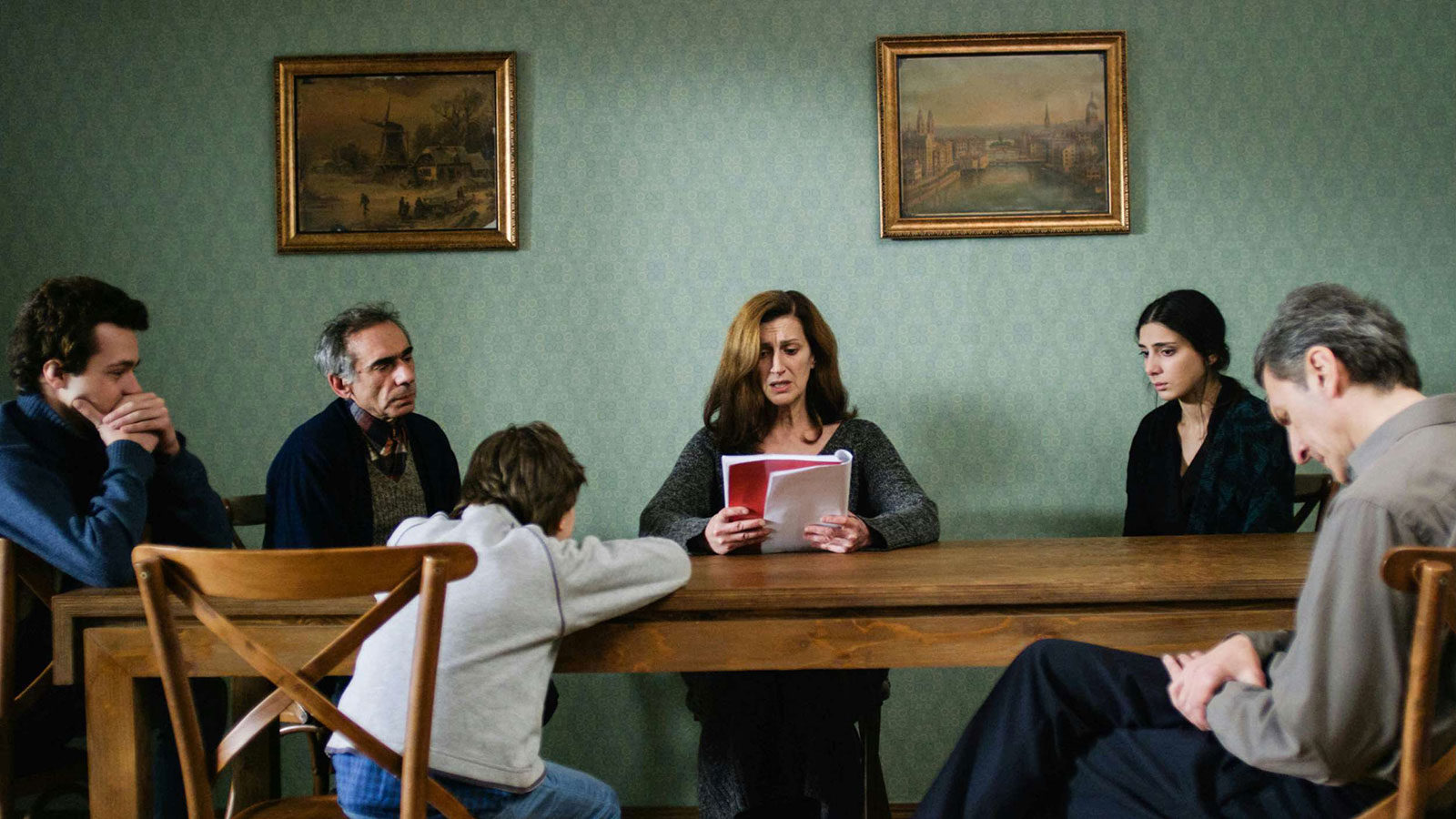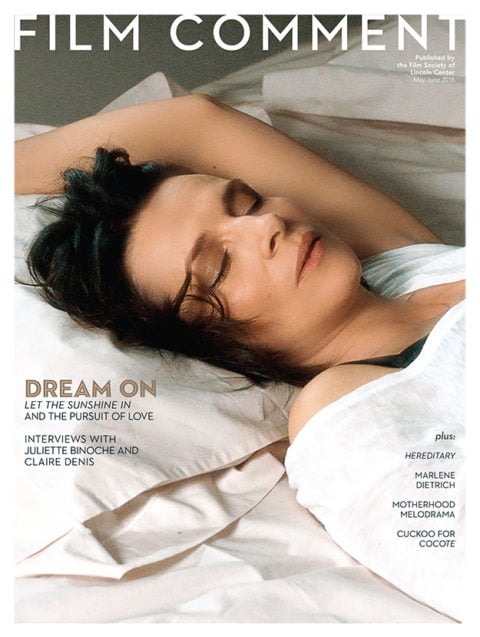By Nicolas Rapold in the May-June 2018 Issue

Maternity Leave
A writer wants to write in peace in Scary Mother, the fervid first film from Georgia’s Ana Urushadze
When struck by inspiration, the fugitive writer in Scary Mother simply rolls up her sleeves… and scrawls notes on her arms. The habit doesn’t endear Manana (Nato Murvanidze) to everyone, and when she disappears for days at a time, her husband worries she’s taken leave of both their kids and her senses. Ana Urushadze, the Georgian writer-director of this darkly comic first feature, reflects Manana’s fervid focus back onto the world, walking us through the cramped psychological landscape of Soviet-era living ruins, and into the amniotic red chamber in the back of a stationery store where Manana secludes herself.

From the May-June 2018 Issue
Also in this issue
You can understand the husband’s concern for Manana, who is prone to drifting into black reveries and unnerving laughter, but he also wants to destroy her new novel and shut her down. Clad in a full-length coat and wild-haired, Murvanidze cuts a figure out of expressionist painting, looming and grimacing; the prose she reads aloud makes Bruno Schulz sound grounded. The Gollum-like stationery-store owner, Manana’s friend and an inspired creation himself, remains utterly devoted to her original talent (as does her daughter), and he pushes cautious publishers to take her work.
This might usually be the province of some Skolimowskian lost rebel hero, but Scary Mother has been claimed since its Locarno debut as a feminist text. There are also resonant personal echoes: Urushadze’s mother was a sometime writer of detective novels; her sister wrote Manana’s raging prose. Her father, Zaza Urushadze, directed the Academy Award nominee Tangerines; Scary Mother was selected as Georgia’s most recent submission. Manana’s father is a translator—whose encouragement seamlessly morphs into red-faced criticism.
But matching up fiction with family actually detours us from Urushadze’s prime accomplishment in portraying not only the fertile monstrosity of creativity but also how Manana embodies a battle of perceptions: sorting out the pressures of her own artistic powers from the strength of people’s opprobrium. Urushadze and Murvanidze convey the force of the literary voice at stake without needing to declare it (or their film) a work of genius (as indeed the store owner does). Yet Scary Mother will strike more chords than expected among viewers with the tenacity of its protagonist.







